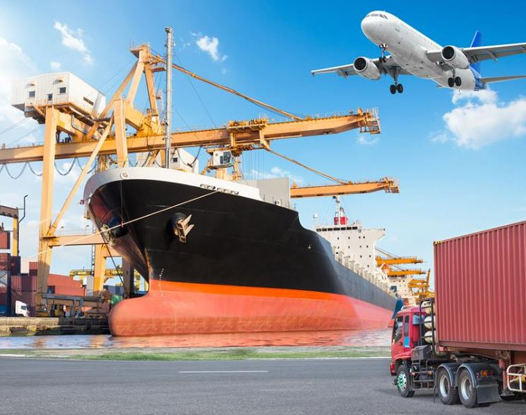Cargo Expedition: The Essential Role in Modern International Commerce
Cargo Expedition: The Essential Role in Modern International Commerce
Blog Article
Cargo transport is an essential aspect of global economics that facilitates the transportation of commodities and merchandise around the world. It encompasses the transportation, logistics and the delivery of a variety of products, from raw materials to completed product. It can be done via air, land or by sea, cargo transportation allows companies to gain access to international markets as well as consumers to receive products across the globe. When industries expand and global trade expands, the importance of safe and effective cargo shipping continues to increase. Due to the advancements in technology and ever-growing demand for speed, cargo operations are transforming the manner in which goods are delivered and are becoming a key element of contemporary commerce.
One of the most important aspects that affect the efficacy of cargo operations is the transportation method. What type of cargo you choose to transport - air freight, sea freight, or road freight, depends on the nature of the product, its location as well as the speed of shipment. Shipping via sea freight is by far the most widely used mode for transporting big quantities of goods as it is cost-effective when traveling long distances, and it can accommodate a range of merchandise. However, it is associated with more lengthy transit times than air-based freight. This is generally preferred for higher-value or sensitive goods such as medical devices, electronic products, as well as perishables. Road freight, typically used for regional deliveries, offers an array of flexibility, and is able to supplement transport by air and maritime, creating a bridge between warehouses, ports and ultimate destinations.
The sheer complexity of cargo journeys require a well-organized coordination among various stakeholders, including shipping companies, customs authorities, and logistical providers. One of the most significant difficulties in shipping cargo is coordinating customs clearance as well as international regulations. The different countries have their own unique import/export restrictions, tariffs, and paperwork requirements, which can create delays or raise costs. In order to deal with the complexities of these logistical companies should be aware of local regulations, tariffs and compliance requirements. It is the reason why a lot of businesses depend on experienced customs brokers and freight forwarders to manage the legal aspects of transportation for cargo. Their expertise guarantees that products get processed efficiently at customs checkpoints and the goods are delivered in time.
Sustainability has emerged as an integral aspect of the Cargo Expedition business, as regulators and environmental concerns force companies to implement greener ways of doing business. The shift towards energy-efficient transportation modes, such as the electric truck and the low emission ships represents a determination to reducing the carbon footprint of logistical operations. Solutions for sustainable packaging as well as waste reduction programs and eco-friendly warehousing are also becoming popular among the industry's top executives. Governments and international organizations are taking part to encourage sustainable practices with incentives, grants, and stricter emissions standards. Through a focus on sustainability shipping, cargo voyages are aligning with global efforts to stop climate change while meeting the requirements of environmental-conscious customers. To get further information please click site
Sustainability is also a significant consideration in cargo voyages as the logistics industry comes under growing pressure to reduce its environmental impact. Transportation, particularly in maritime and air sectors has a significant impact on global carbon emissions. As a result, many companies are adopting environmentally friendly practices for example, using environmentally friendly fuels, optimizing routes to decrease fuel usage, and investing in energy-efficient technologies. Some companies are also investigating alternative options for cargo transportation, such as the use of electric trucks, or even solar-powered vessels, to reduce their carbon footprint. A growing focus on environmental sustainability during cargo journeys represents a larger movement towards environmental sustainability and the necessity to combat the issue of climate change.
The increasing demand for cargo transport services is closely tied to the growth of online shopping, changing the way merchandise is sold and purchased. The internet has brought about a world-wide marketplace where products are distributed to buyers all over the world, requiring speedier and more secure shipping systems. E-commerce companies, particularly giants like Amazon and Alibaba are revolutionizing the logistics sector by adding advanced technology to their supply chains. This allows them to offer near-instant delivery times. They have raised the bar for other companies, requiring companies to invest in effective freight expedition services to stay in the game. While e-commerce grows, the need for streamlined and reliable cargo services will be more critical than ever, reshaping logistics infrastructures across the world and driving innovation in this sector.